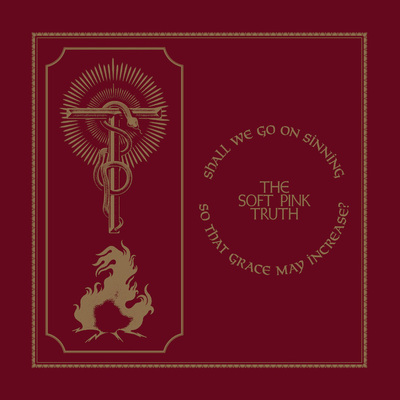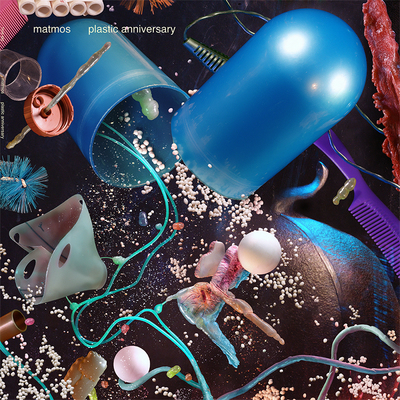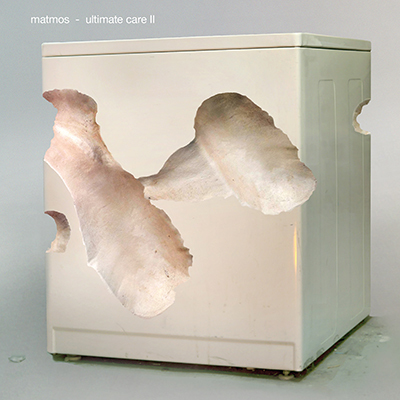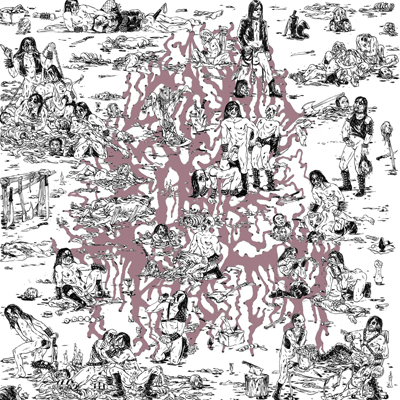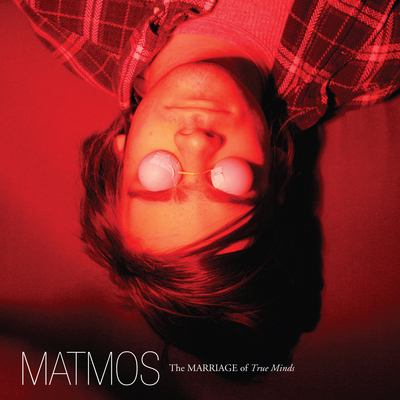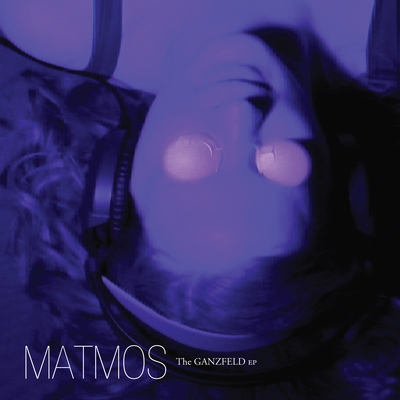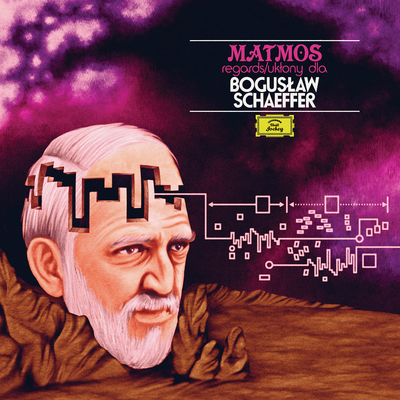
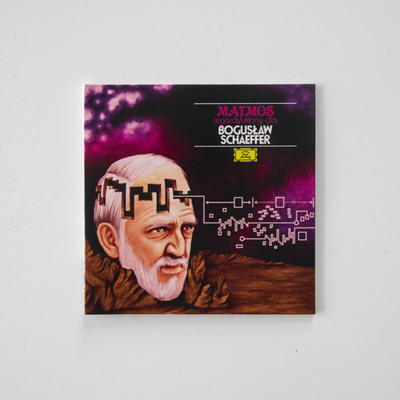
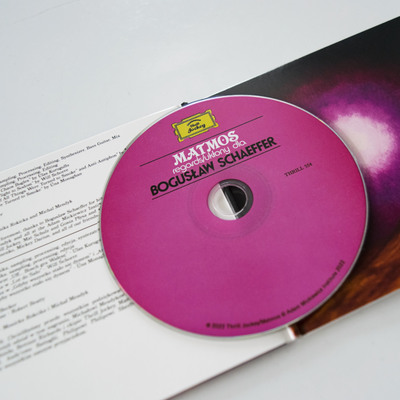
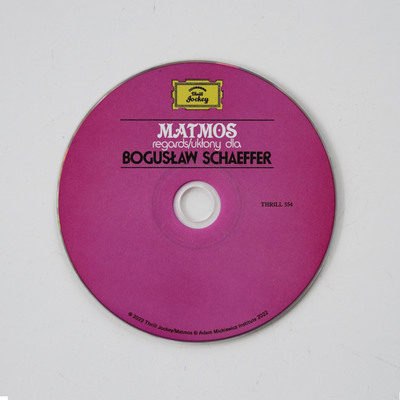
Regards / Ukłony dla Bogusław Schaeffer
EU/UK customers please purchase through anost.net
Having assembled 99 collaborators for their previous album The Consuming Flame, on their new album Baltimore-based electronic duo Matmos focus upon just one person: Polish polymath Bogusław Schaeffer. Celebrated in his native land but not widely known beyond, Schaeffer innovated for decades across the boundaries of classical composition, electronic experimentation, and radical theater in playfully form-breaking ways. At the suggestion of Michal Mendyk of the Instytutu Adama Mickiewicza in Warsaw, Matmos were given access to the entire catalogue of Schaeffer’s recorded works to use as they saw fit. Neither performances nor remixes, the resulting encounters between past and present take tissue samples of DNA from past compositions and mutate them into entirely new organisms that throb with an alien vitality. What emerges across this suite of eight new songs is a composite portrait of the utopian 1960s Polish avant-garde and the contemporary dystopian cultural moment regarding each other across a distance.
Like the anagrams of the letters of Bogusław Schaeffer’s name that were re-assembled to create some of the song titles, the album itself is a musical re-assemblage of component parts into possible but unforeseen new shapes. Adding harp from Irish harpist Úna Monaghan, erhu, viola and violin from Turkish multi-instrumentalist Ulas Kurugullu, and electronic processes from Baltimore instrument builder Will Schorre and Horse Lords wunderkind Max Eilbacher, the resulting arrangements constantly toy with scale as they move from the close-mic-ing of ASMR and the intimacy of chamber music to the immensity of processed drones and oceanic field-recordings that close the album. Offering a “life review” of production styles, Regards / Ukłony dla Bogusław Schaeffer builds temporary shelters out of the panoramic wreckage of modernist composition, sixties tape music, seventies dub, eighties industrial music, nineties postrock and dark ambient, 2000s era glitch fetishism, and contemporary post-everything collage sensibilities.
The contrary poles of humor and morbidity for which Matmos are known show up on the album’s distinct sides. Balancing structure and texture, side one of the LP is spiked with plunderphonic surprise edits and unexpectedly pop pleasures, while side two opens out into more extended, sprawling and ominous forms. On the opening track “Resemblage / Parasamblaż” the choral harmonies and analogue electronics of Schaeffer’s work jostle against distinctly contemporary sub-bass drops and spiky high-end fizzes. But just as often historical dividing lines seem to blur, soften or melt, as when “If All Things Were Turned to Smoke / Gdyby wszystko stało się dymem” cuts and refolds fragments of harp and aquatic musique concrète from Schaeffer’s 1970 composition “Heraklitiana” into a faintly swinging polychronic elegy. Throughout, nostalgia is repudiated in favor of creative re-use.
To facilitate the transcultural exchange that is the album’s essential premise, all song titles and liner-notes are provided in both English and Polish. The album was mastered by Rashad Becker and features illustration and design by Robert Beatty.

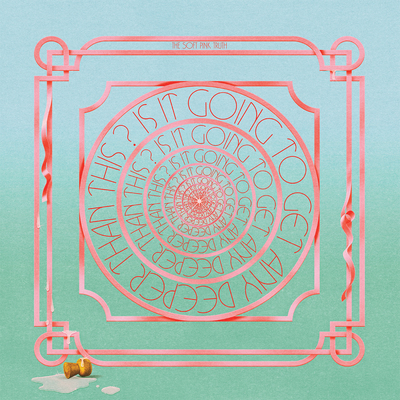
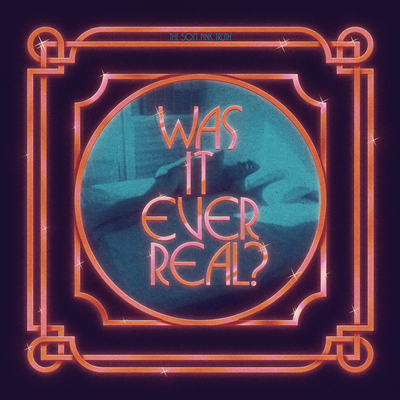
_-_multi-track.jpg?1590101439)
